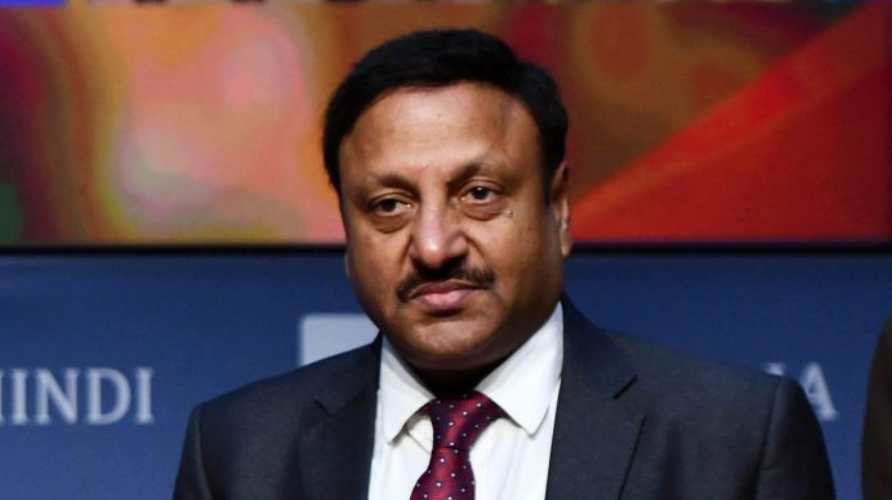
Gujarat polls: 1,000-odd firms tie up with EC to reveal names of staffers who don’t vote

If you work for a corporate house in Gujarat and do not vote in the upcoming Assembly polls, you may find your name published on you company websites or office notice board along with others who gave the poll booths a miss.
In the first such move, over 1,000 corporate houses in Gujarat have signed agreements with the Election Commission (EC), promising to monitor the “electoral participation of their workforce” and publish the names of those who do not vote on their websites or office notice boards.
“We have signed 233 MoUs (Memorandums of Understanding) that will help us enforce the EC’s guidelines. For the first time in Gujarat, we will monitor the electoral participation of the workforce belonging to 1,017 industrial units,” The Indian Express quoted the Gujarat Chief Electoral Officer (CEO) P Bharathi as saying.
EC is watching you
Individual units as well as industry bodies have signed the MoUs, and attempts are on to bring more on board before the Assembly elections in the state later this year.
Also read: UK trade deal in jeopardy, Modi must plan new ‘Diwali gift’ for Gujarat
In June, the EC had asked all central and state government departments, public sector units, and corporate entities with 500-plus employees to appoint nodal officers to identify employees who enjoy leave on polling day but do not vote.
“To expand our reach, we decided to monitor industries employing 100 or more workers in Gujarat. The human resources officials in these units have been appointed as nodal officers. They will make a list of employees who do not vote and publish it on their websites or notice boards,” said Bharathi.
Similarly, employees of state public sector units and government departments will also be monitored, he said.
Urban voters targeted
Chief Election Commissioner Rajiv Kumar said the move was mainly to “request, motivate, and nudge” urban voters to express their political opinion through the EVMs rather than on social media.
Also read: Manish Sisodia: BJP plans to arrest me in ‘fake’ case, keep me out of Gujarat
“Of the seven lowest-voting-percentage districts during the 2019 general elections, four were metropolitan cities. Voting percentage in urban areas is generally low, pulling down the overall figure. Enthusiasm in discussing contemporary issues should not remain confined to social media alone, but also needs to find expression through voting. So, we are requesting, motivating, and nudging leave-taking and non-voting ones (voters) in urban areas through sharper SVEEP (Systematic Voters’ Education and Electoral Participation) activities, distinct from other target groups like rural areas, women, and youth,” he explained.
Section 135B of the Representation of the People Act, 1951, says that every registered voter employed in business, trade, industrial undertaking, or other establishment, and entitled to vote in a Parliament or Assembly election, must be granted a paid holiday for the purpose. The state and central governments always notify polling day as a paid holiday within the meaning of Section 25 of Negotiable Instruments Act, 1881.
EC cannot enforce compulsory voting
During his recent visit to Gujarat, Kumar had admitted that the EC could not enforce compulsory voting. But it wanted to identify workers in big industries who do not vote despite enjoying the holiday. “Since there is no compulsory voting, it is an attempt to identify those who do not vote,” he had said.
Also read: Opposition slams EC for deferring Gujarat poll date announcement
Bharathi said that in some industries, the management cannot possibly grant leave to workers on polling day. The Gujarat Chamber of Commerce and Industry (GCCI), for instance, has said that most of its members operate MSME (micro, small and medium enterprises) units. So, they may not be able to grant a holiday to workers on polling day.
“According to our agreement with the EC, we will arrange for our workers to go out and vote (during work hours). We will not be able to grant a holiday, but we will allot a time slot and arrange conveyance. This facility will be only for local workers,” said GCCI president Pathik Patwari.
The voter turnout in Gujarat was 69 per cent in the 2017 Assembly elections and 64 per cent in the 2019 Lok Sabha elections. The polling stations that reported low turnout in 2017 have been identified, said Bharathi.

